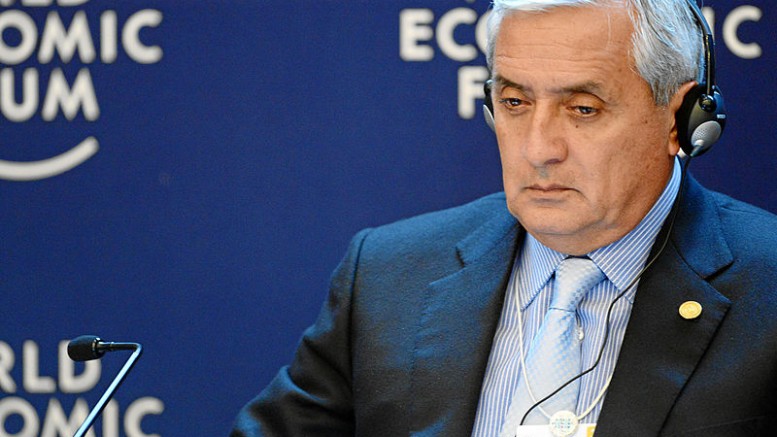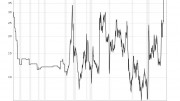As miners active in Guatemala sit on the sidelines with furrowed brows, Guatemala has been embroiled in a political turmoil stoked by an anti-corruption drive that has led to the arrest of President Otto Perez Molina and the rise of a genial comic actor as the leading candidate to replace him.
This latest round of national instability kicked off on April 16 with the release of a report by the internationally staffed UN anti-corruption agency International Commission Against Impunity in Guatemala (CICIG) that implicated senior government officials with organized crime — including Vice-President Roxana Baldetti, Guatemala’s first-ever female VP.
The CICIG, working with the country’s attorney general Thelma Aldana, had uncovered a scam known as “La Linea” whereby government officials accepted bribes from importers in return for reducing tariffs.
Popular outrage soon led to the peaceful assembly of tens of thousands of ordinary citizens in Guatemala City to protest government corruption — a remarkable feat for a country with a deeply rooted history of political violence, including death squads.
The vice-president was forced to resign, but the CICIG was only getting warmed up. It has since released a flurry of corruption reports, including one touching on the dubious and ultimately lethal outsourcing of dialysis services to an inexperienced Mexican firm, resulting in resignations of dozens of high-level government officials and members of opposition parties, plus at least 17 arrests on bribery-related charges.
The climax was on Aug. 21, when CICIG and Aldana’s joint investigation showed that Perez Molina and Baldetti were in fact the leaders of La Linea. Baldetti was arrested, top cabinet members resigned and a defiant Perez Molina — temporarily immune from prosecution due to his position as president — appeared on national TV declaring he would stand firm.
Popular opposition to the president intensified, resulting in more peaceful street marches, roadblocks, strikes and school and business closures around the country.
Molina resigned as president on Sept. 2 after being impeached by Congress the day before, and he was summoned to the Justice Department for a legal audience regarding his role in La Linea. He’s now in jail.
The stunning success of CICIG in Guatemala — an effective outsourcing of national anti-corruption investigative powers to an international body, headed by 60-year-old Colombian prosecutor Ivan Velasquez — has anti-corruption activists in countries such as Honduras and Mexico lobbying for the creation of similar bodies in their own countries. They point to the impressive record of CICIG since it was created in 2007 — more than 200 investigations resulting in charges against more than 160 current and former government officials — and conclude little of it would have been possible if the investigations had been carried out internally by Guatemalans alone.
Meanwhile, Guatemalans voters are gearing up for the next round of the presidential election campaign that has seen the sudden rise of an unlikely candidate: former TV comedian and political neophyte Jimmy Morales, 46, who won the first round in early September running under the campaign slogan, “Neither corrupt nor a thief.”
Morales is so far the leading candidate in the run-off vote set for late October, and he says he “won’t be able to govern without CICIG,” which operates under mandates that are renewed every two years.
The biggest Canadian miners active in Guatemala are Tahoe Resource and Goldcorp, and thankfully their names have not been associated with the high-profile arrests. Still, the share price of Tahoe — with its one producing asset in Guatemala — has come under pressure with each bit of news of top-level resignations, even if the current anti-corruption drive in Guatemala is indeed heartening.
After the president stepped down in early September, Tahoe said in a brief statement that “Congress’s removal of Perez Molina’s immunity and his subsequent resignation is viewed as a positive step in repairing a government divided by recent corruption,” and that its Escobal silver mine — the world’s third largest silver mine — was operating as usual.




Be the first to comment on "Editorial: Political risk never far in Guatemala"